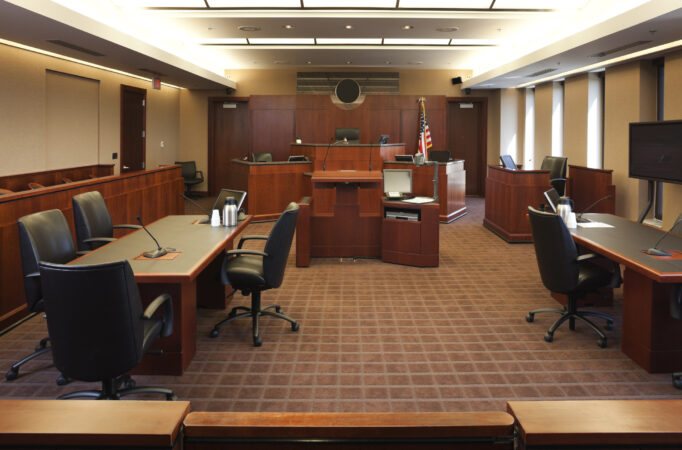Litigation: Latest Legal Blogs and News
Pennsylvania Superior Court: Arbitration clause invalid for failing to comply with HICPA
On September 13, 2023, the Superior Court of Pennsylvania held that an arbitration clause in a home improvement contract was invalid because it failed to comply with the requirements of the Pennsylvania Home Improvement Consumer Protection Act (“HICPA”). In Freeman v. Akidelphia Creative Contracting, LLC, --- A.3d ----, 2023 WL 5944622 (Pa. Super. 2023), a unanimous, precedential opinion, the Superior Court held that “the trial court did not abuse its discretion in refusing to compel arbitration” where the arbitration clause met only one of the six requirements of 73 P.S. § 517.7(d).
This case arose from a 2021 home improvement contract between Jill Freeman and Akidelphia Creative Contracting, LLC and Akil Bowler (“Appellants”) for the renovation of Ms. Freeman’s Philadelphia condominium. The contract contained a “Dispute Resolution” provision purporting to mandate arbitration. Seven months after the contract was executed, Ms. Freeman notified Appellants that they were in default for failing to complete the work in a timely and workmanlike manner.
Ms. Freeman filed a civil action in state court raising claims for negligence and violations of HICPA and the Pennsylvania Unfair Trade Practices and Consumer Protection Law (“UTPCPL”). Appellants filed preliminary objections seeking to dismiss the complaint and compel arbitration based on the arbitration clause. The trial court overruled Appellants’ preliminary objections, finding that the arbitration clause failed to include five of the six requirements of § 517.7(d), which allowed the clause to be deemed void.
On appeal, the Superior Court observed that Appellants did not dispute that the arbitration clause failed to meet multiple requirement, including that the text of the clause be in capital letters and 12-point boldface type. The Superior Court found “no error in the trial court following the plain language of the statute and deeming the arbitration clause void,” and held that, “[a]bsent a valid arbitration clause under Section 517.7(d),” the trial court properly overruled Appellant’s preliminary objections.”
About Us
The litigation attorneys at Houston Harbaugh, P.C., are accomplished business trial lawyers, providing comprehensive support in litigation across a broad spectrum of matters throughout Pennsylvania, West Virginia, Ohio and other jurisdictions upon a special admission basis. Our clients are regional and national small, medium and large companies and individuals who seek well planned and aggressive, but cost effective litigation. We counsel, we budget, we have a deep bench, we act quickly when needed and we have experienced trial lawyers who know the courts and bench. We serve regularly as local counsel for some of the largest law firms in the country when they have matters in this region.

Henry M. Sneath - Practice Chair
Co-Chair of Houston Harbaugh’s Litigation Practice, and Chair of its Intellectual Property Practice, Henry Sneath is a trial attorney, mediator, arbitrator and Federal Court Approved Mediation Neutral and Special Master with 98 trial verdicts and extensive federal and state court trial experience in cases involving commercial disputes, breach of contract litigation, Artificial Intelligence (AI), intellectual property matters, patent, trademark and copyright infringement, trade secret misappropriation, DTSA claims, cyber security and data breach prevention, mitigation and litigation, employment and restrictive covenant litigation, probate trusts and estates litigation, construction claims, eminent domain, professional negligence lawsuits, pharmaceutical, products liability and catastrophic injury litigation, insurance coverage, and insurance bad faith claims. DTSALaw® Business Litigation. Pittsburgh Strong.®

Samuel H. Simon - Practice Chair
As co-chair of Houston Harbaugh’s Litigation Group, Sam focuses his practice on commercial/business litigation. Sam regularly represents clients in the construction, manufacturing, oil and gas, and wholesale/retail/ distribution industries, as well as individuals in matters such as:
- Construction litigation
- Environmental litigation
- Breach of contract disputes
- Oil and gas litigation
- Negligence
- Restrictive covenants (non-compete agreements)
- Civil rights
- Collections/creditors’ rights
- Lease disputes

